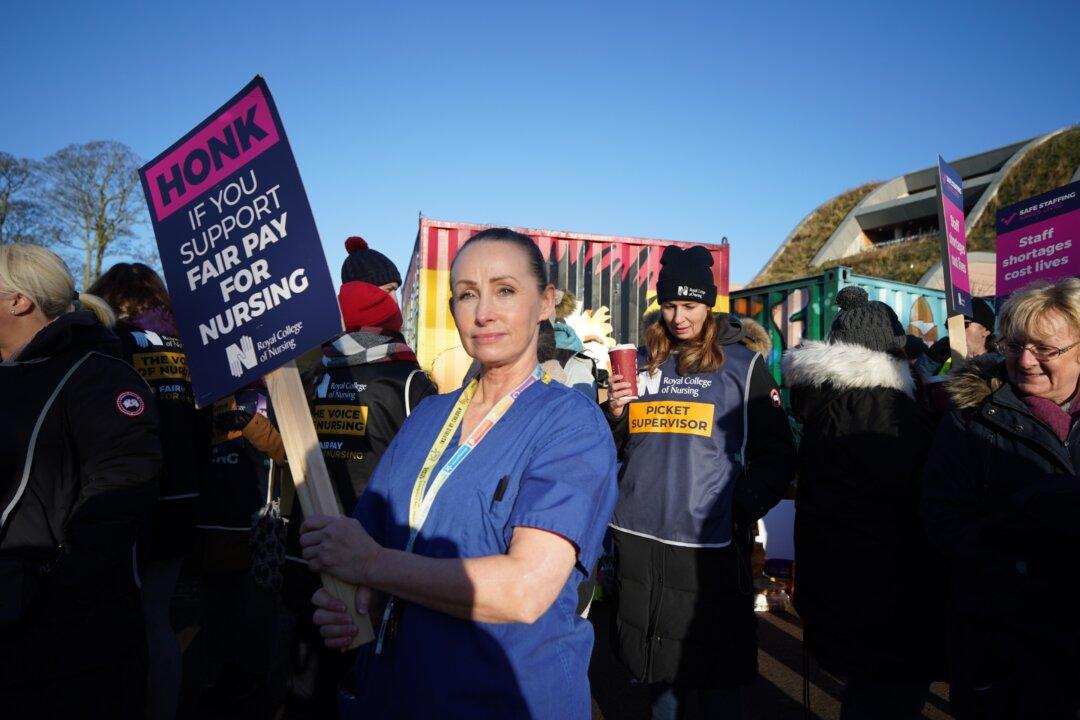Up to 100,000 members of the Royal College of Nursing (RCN) union in England, Wales, and Northern Ireland have walked out in a one-day work stoppage, the biggest-ever strike by nurses in the UK, after the government rejected their pay demand as unaffordable.
It’s the first time the RCN has taken action across the whole of the UK in its 106-year history. The move is affecting around a quarter of hospitals and community teams in England, all trusts in Northern Ireland, and all but one health board in Wales. Scotland is currently unaffected, as the local government has reopened pay talks for the National Health Service (NHS).





